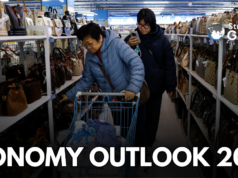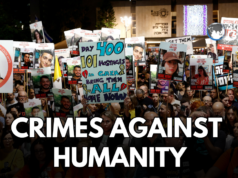NEW DELHI: China’s President Xi Jinping pulled out all the stops to ensure that the third Belt and Road Forum—held a decade after his flagship project was launched—billed as the most important diplomatic event of the year, sent the right message to the world.
But despite the hype and hoopla surrounding the two-day jamboree, the world has changed dramatically since the previous BRI forum held four years ago. The Covid-19 pandemic, the Ukraine crisis, growing friction with the West led by the U.S. and now the latest Mideast crisis, have all combined to slow, if not stall, China and Xi’s inexorable rise.
While it would be extremely naïve to write off either Xi or the BRI just yet, the fact remains that while the first BRI forum in May 2017 had 29 heads of state and government in attendance and the second one in April 2019 had 37, this year there were only 24.
“This forum was intended to project the extent of the BRI and its success,” former Additional Secretary, Cabinet Secretariat, Jayadeva Ranade told StratNews Global. “Many of the leaders attending the forum came in the hope of being able to plead their case for debt relief with Xi Jinping. Pakistan, Kenya, Kazakhstan, etc. among them. But China has been reluctant to give any concessions or extensions for fear it will trigger an avalanche of such requests. Chinese investment in the BRI has also reduced to under 50 per cent over the past three to four years,” he pointed out.
When Xi was re-elected President for an unprecedented third term at the 14th National People’s Congress in March, many argued it made him China’s supreme leader for life. The ruthless manner in which he purged all potential opponents and filled the 24-member Politburo, China’s top decision making body, with his loyalists while retaining key posts for himself further reinforced that narrative.
But the global economic downturn, a housing bubble, growing unemployment and lack of investor confidence has fuelled resentment and murmurs of dissent among the group the Communist Party fears the most: the youth.
In order to ensure that there were no surprises, he moved to turn China into an even more totalitarian state, where, as one loyalist proudly declared, “not a leaf can fall without our paramount leader being aware of it.”
Like his predecessors, Xi had no qualms using anti-corruption drives as a political tool. The powerful and much-feared Central Commission for Discipline Inspection (CCDI) has “disciplined” officials and workers across all levels since Xi became president in 2012.
“We will strictly investigate and punish corruption, embezzlement, misappropriation, false claims, and extortion, and increase efforts to rectify bad actors in the countryside, streets, and mining sector found in corruption cases, effectively enhancing the people’s sense of gain, happiness, and security,” says an October 11 article published by the CCDI.
Titled “Promote the extension of anti-corruption to the grassroots level,” the article cites the “Work Plan of the Central Anti-Corruption Coordination Group (2023-2027),” which calls for extending the anti-corruption drive to the grassroots level and ensure people can feel that the anti-corruption campaign is around them.
“The anti-corruption struggle has the greatest political bearing on the people’s hearts. Promoting the extension of anti-corruption to the grassroots is necessary to win the tough and protracted battle against corruption. The people are deeply disgusted by the corruption problems happening around them, and they feel it particularly deeply,” the article declares.
“Xi Jinping’s third term has not been that easy for him,” Dr Bhim Bahadur Subba, who teaches Political Science at Hyderabad University, told StratNews Global. A recipient of the Confucius Institute Scholarship for Mandarin Language Training, Dr Subba focuses on China studies (domestic politics and party leadership); comparative politics and international affairs.
“Although the power struggle is not a more significant threat to his leadership, it appears his own ‘appointees’ or ‘selectees’ have become targets of the party’s anti-corruption investigation. This is a concern for the party. Anti-corruption is a tool to snare ‘amoral and non-virtuous’ officials and a political strategy to weed out disloyal cadres. The recent events of the purging of foreign and defence ministers and other higher echelons of the PLA rocket force indicate both,” he says.
According to him, “Anti-corruption is the only tool. The party has no other mechanism to discipline active/In service officials/cadres. (Former Chinese foreign Minister) Qin Gang is a non-virtuous cadre fathering a child out of wedlock, but other cases belong to the anti-corruption kind. It is likely more civilian control over military and security agencies, including private firms will increase with re-invigorating political education and re-education campaigns”.
However, “Weeding out seniors and replacing them with loyalists without domain expertise will hollow out the specialized organizations/agencies needed the most for Xi’s leadership. So, loyalty training to the ‘core’ might be the central task of Xi Jinping in the domestic sphere, as the 10th BRI Summit seemed to be quite a successful gathering despite other pressing domestic issues,” he adds.
At the Global Conference On New Sinology curated by the Organisation for Research on China and Asia in New Delhi in late September, a delegate told this correspondent that while it was critical for Xi, “consolidating power was a two-edged sword. Earlier, people blamed the politburo, a 24-member collective for their woes. Now, it is only Xi. And both the people and the party can be extremely unforgiving if he doesn’t deliver.”
Contending that his performance during his third term will determine Xi’s ability to stay on as China’s supreme leader, he quoted Jim Morrison, the late lead singer of The Doors, saying “the future’s uncertain and the end is always near.”
Also see:
In a career spanning three decades and counting, Ramananda (Ram to his friends) has been the foreign editor of The Telegraph, Outlook Magazine and the New Indian Express. He helped set up rediff.com’s editorial operations in San Jose and New York, helmed sify.com, and was the founder editor of India.com.
His work has featured in national and international publications like the Al Jazeera Centre for Studies, Global Times and Ashahi Shimbun. But his one constant over all these years, he says, has been the attempt to understand rising India’s place in the world.
He can rustle up a mean salad, his oil-less pepper chicken is to die for, and all it takes is some beer and rhythm and blues to rock his soul.
Talk to him about foreign and strategic affairs, media, South Asia, China, and of course India.




